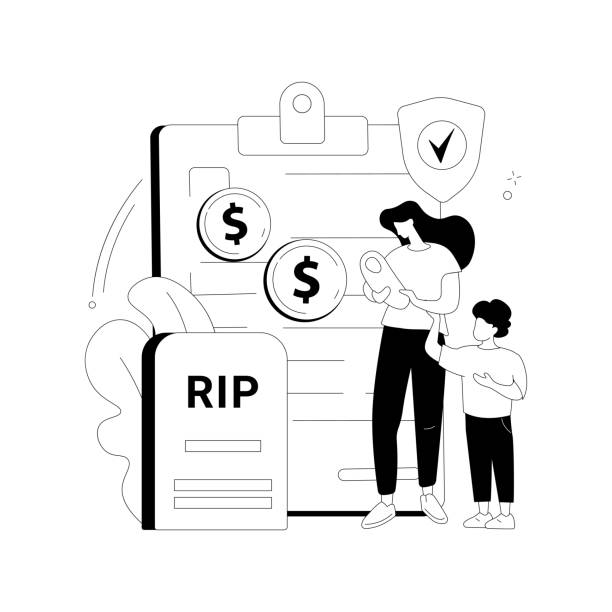If you’re contemplating when to file for Social Security, you’ve likely come across a wealth of information suggesting that delaying your application is the only wise choice. While it’s true that filing at age 62 results in reduced benefits, the notion that this is always a bad idea is a broad oversimplification. The decision to file for Social Security at 62 is highly dependent on individual circumstances. In this article, we’ll explore five specific Reasons to File for Social Security at 62.
1. Need for Immediate Income
If you’re in a situation where you’ve left your job and plan to retire, and you need a source of income, then filing for Social Security at 62 is a straightforward decision. There’s no need for complex strategies here; the primary concern is meeting your financial needs.
It’s worth noting that studies have found that a significant portion of retirees leave the workforce earlier than they had planned. Health concerns or disabilities often force early retirement. If you fall into this category, ensure you explore the possibility of disability benefits before opting for early retirement.
2. Single with Health Issues
For individuals who are single and dealing with health problems, a simple break-even analysis can help make the decision between filing at 62 or waiting until full retirement age. This analysis compares the cumulative lifetime benefits of filing at different ages. If you have health issues and are not concerned about survivor benefits, filing early, around age 62, is likely the best choice and another choice is free health care services.
3. Eligibility for Survivor’s Benefits
Filing early can also be advantageous if you are eligible for survivor’s benefits. This strategy involves filing for survivor benefits at age 62 and switching to your own benefit later, potentially at age 70. This approach can result in a significantly higher benefit in the long run.
Let’s illustrate this with an example: if your full retirement age benefit is $1,500, but you are eligible for a survivor’s benefit of $1,750, filing for the survivor benefit at 62 and then switching back to your own benefit at 70 can yield substantial lifetime benefits. Understanding how this works is crucial.
4. Support for Minor or Disabled Children
If you have dependent children, eligible grandchildren, or a spouse providing care for them at home, they may be eligible for benefits based on your work record. However, you must file first to trigger these benefits. Keep in mind that these family members can receive up to 180% of your full retirement age benefits in combination with your benefits.
Consider a scenario where you’re 62, your spouse is 50, and you have children aged 13 and 11. While waiting until full retirement age might increase your individual benefit, your family could receive significantly more in lifetime benefits if you file early and activate benefits for your children.
5. Spousal Considerations
When it comes to spousal issues, there are multiple factors to consider, such as your spouse’s earnings, age, and health. While these considerations are closely related, they can have a significant impact on your decision.
If your spouse is younger and a lower earner, delaying your benefit to increase their future survivor benefit may not make sense, especially if your spouse’s health is poor. Additionally, if your spouse is the lower earner, their benefit may not reach its maximum potential until you file, so it could be advantageous to file early to open the door to spousal benefits.
It’s important to remember that spousal benefits don’t increase beyond full retirement age. If your spouse is older than you, waiting to file may increase your benefit, but it won’t necessarily boost your spouse’s benefit.
If your spouse is the higher earner and in poor health or significantly older than you, filing early may be the best course of action, as your own benefit will become their survivor benefit upon your passing.
Conclusion
The decision to file for Social Security benefits at age 62 is not a one-size-fits-all choice. It’s essential to consider your unique circumstances and financial needs. While many experts advocate for delaying benefits, there are compelling reasons to file early. Whether it’s due to immediate income requirements, health concerns, eligibility for survivor’s benefits, dependent family members, or specific spousal considerations, understanding these scenarios can help you make an informed decision. Remember, when it comes to Social Security, there is no one definitive answer, but with the right knowledge, you can make the choice that best suits your retirement goals and financial well-being.
Frequently Asked Questions (FAQs)
What is the earliest age I can file for Social Security benefits?
You can file for Social Security benefits as early as age 62. However, keep in mind that filing at this age results in reduced monthly benefits compared to waiting until your full retirement age.
How much will my monthly benefits be if I file at age 62?
If you choose to file for Social Security at age 62, your monthly benefits will be approximately 70% of your full retirement age benefit amount. The exact amount may vary depending on your specific circumstances.
Are there any circumstances where filing at 62 is a good idea?
Yes, there are several scenarios where filing for Social Security benefits at 62 can be a sensible choice. These include when you need immediate income, have health issues, are eligible for survivor’s benefits, have dependent children or a spouse providing care, or when spousal considerations make early filing advantageous.
What is a survivor’s benefit, and how does it work?
A survivor’s benefit is a Social Security benefit paid to the surviving spouse or eligible family members of a deceased individual who was receiving Social Security benefits. To qualify for survivor benefits, you typically need to meet certain criteria, and the amount you receive is based on the deceased individual’s work record.
Can I change my mind after filing for Social Security at age 62?
Yes, you can change your mind within the first 12 months after filing for Social Security. You can choose to withdraw your application, repay the benefits you’ve received, and delay claiming benefits until a later date to receive a higher monthly amount. After this one-year window, changes to your filing decision become more limited and may have different consequences.






